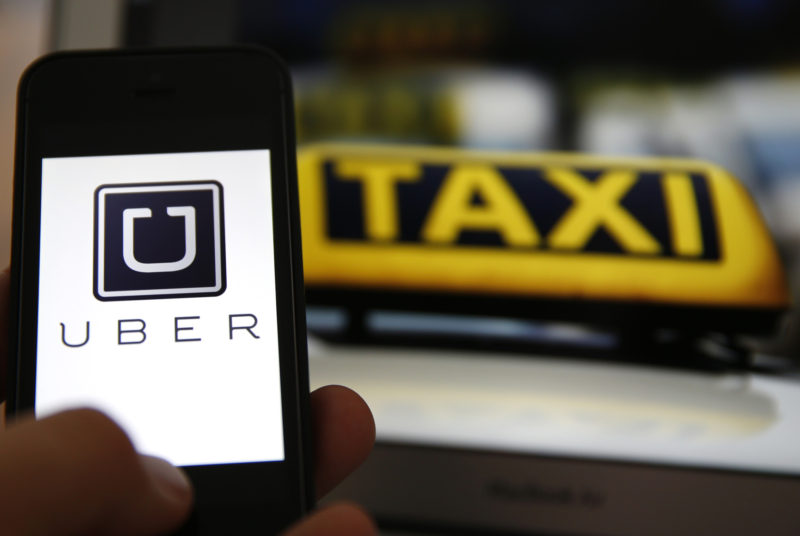Jefferson City, Mo. – Just two days after Uber received approval from Jefferson City to operate inside the city limits, the Missouri Senate has taken up HB 130 for a third reading.
The legislation, passed out of the House in late January, seeks to give ridesharing companies like Uber and Lyft the ability to operate statewide in Missouri.
HB 130, sponsored by Rep. Kirk Mathews, was passed by a vote of 140-16 in the lower chamber.
The House version, taken up by the Senate on Wednesday afternoon, would outline statewide regulations, such as a $5,000 fee, background checks, and vehicle inspections.
Currently, municipalities currently have the power to create their own rules for the transportation companies. Uber operates in St. Louis, Springfield, Columbia, and Kansas City, and the Jefferson City Council approved Uber to operate in the Capital City in Monday night’s meeting.
The Senate seems determined to attach a number of amendments to the legislation, with the first proposed amendment addressing the fact that the current bill language exempts the app-based companies from paying local or municipal taxes. That amendment, which would have prohibited discriminatory taxes on rental car agencies, was withdrawn. Discriminatory taxes would have to be approved by the legislature.
The second amendment to the bill, filed by Sen. Jamilah Nasheed, would remove non-emergency medical transportation from being regulated by the Taxi Commission. Nasheed argued that the vehicles were unnecessarily in a way they shouldn’t be. Her amendment passed with no vocal opposition.
Sen. John Rizzo filed a third amendment to the Senate substitute, regarding the use of geofencing. Rizzo claimed that Uber had utilized geofencing in an effort to evade law enforcement while illegally operating in municipalities.
Sen. Bob Onder suggested some changes, which Rizzo agreed to approve the changing of the language to give law enforcement the ability to approve the usage of geofence in the event of a parade or other event. But in the end, that amendment was to withdrawn in order to allow Rizzo a chance to further clean up the language.
Schaaf filed a fourth amendment to the bill, another version of the previous amendment seeking to protect rental car companies from being taxed, but that measure was also withdrawn following a point of order issued by Sen. Ryan Silvey. He argued that the scope of the bill exceed that of the title.
The attempts to perfect the amendments continued throughout the night, with senators leaving the floor in an attempt to further discuss how best to push their changes through.
Rizzo returned at 6 p.m. with changes to his previous amendment, still prohibiting TNCs from using geofencing to evade law enforcement and also including language to ensure that the parent companies cannot prevent services from being offered an area based on economic prowess or any other forms of discrimination, whether it be race, income, religion, etc.
Rizzo said the intent was to simply give drivers the ability to see the whole map and not have companies decide where they can or can’t go.
Sen. Ed Emery questioned how they would determine the cause of the geofencing in a discriminatory case, which Rizzo said would be up to debate. Sen. Paul Wieland also questioned how the law would be enforced.
“These are huge companies with offices that could be outside of the country,” Wieland argued. He also argued that a legal battle against a multi-million dollar company for violating the geofencing provision might not be worth the effort to a prosecutor.
After nearly another hour of debate on Rizzo’s amendment, it was adopted just before 7 p.m. Five hours after the Senate went into session, the Senate substitute was laid over on the informal calendar.
Benjamin Peters was a reporter for The Missouri Times and Missouri Times Magazine and also produced the #MoLeg Podcast. He joined The Missouri Times in 2016 after working as a sports editor and TV news producer in mid-Missouri. Benjamin is a graduate of Missouri State University in Springfield.











